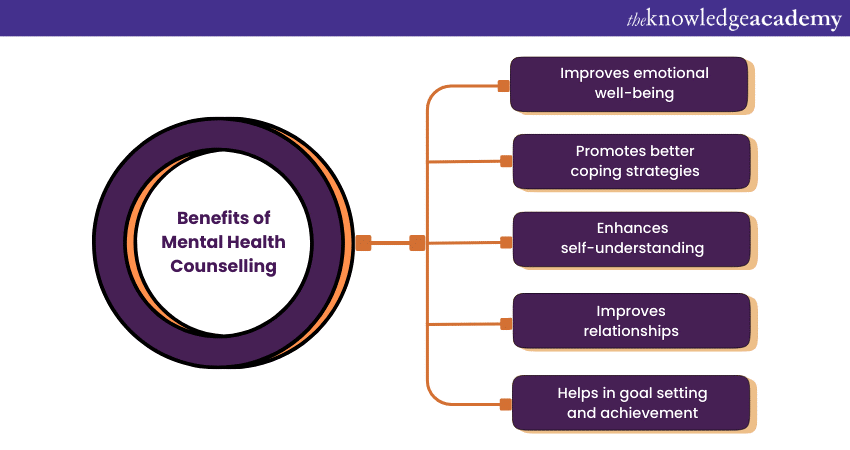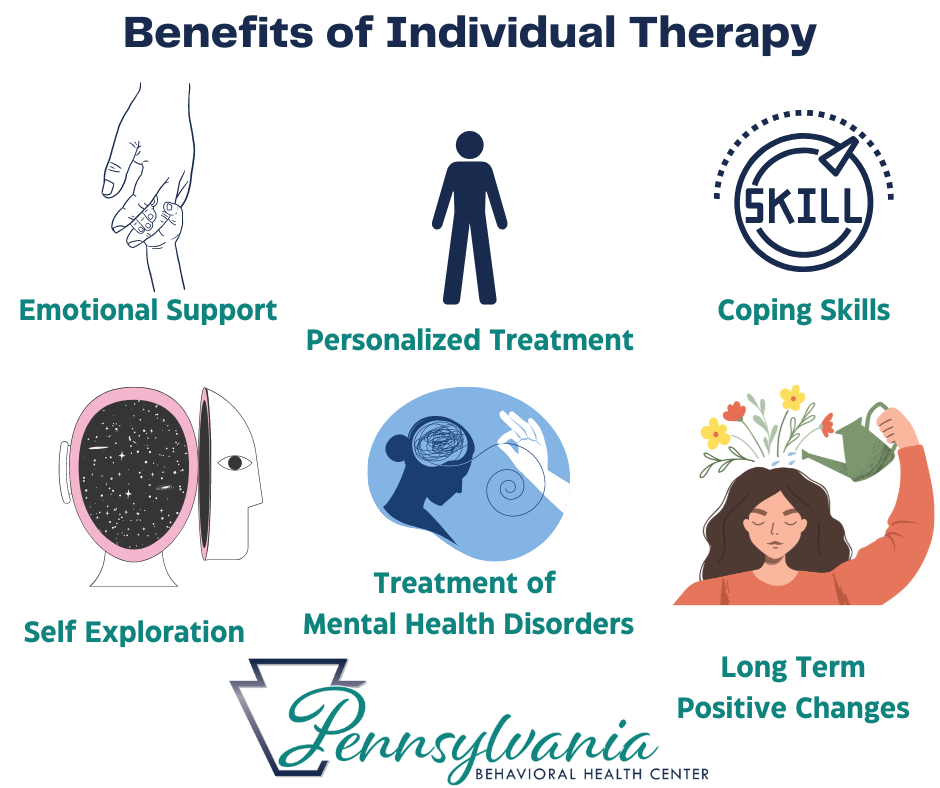7 Simple Techniques For Mental Health Counseling
Table of ContentsWhat Does Mental Health Counseling Mean?Some Known Questions About Mental Health Counseling.The Single Strategy To Use For Mental Health CounselingEverything about Mental Health CounselingThe Mental Health Counseling Statements
Through therapy, you can gain understanding right into your own patterns of behavior and communication, which can lead to more satisfying and satisfying connections with buddies, household, and enchanting companions. What we believe, we show up. If you're consumed with adverse emotions and unfavorable ideas that are conflicting with your life, therapy can aid.Like our ideas, often our actions end up being harmful. They can keep us from living a favorable and healthy and balanced way of life. Possibly you have problem with dependency, or you often tend to self-sabotage, or there are other unfavorable methods you behave. Mental Health Counseling. Therapy can aid you change those habits that are having an unfavorable impact on your globe and partnerships.

Obtaining therapy to attend to particular aspects of your life can aid you be a lot more efficient in other areas, including job.

Mental Health Counseling Can Be Fun For Anyone
There are even much more advantages of treatment than just the ones we have talked about., or construct partnerships (enchanting or those with household or pals) in a healthy method.
For the function of today study, viewed advantages and barriers to psychological wellness help-seeking are being discovered. Previous research study located that perceived barriers have a significant impact on university student' health habits choices (Von Ah, Ebert, Ngamvitroj, Park & Kang, 2003). Regarded benefits and obstacles to help-seeking were especially selected due to their impact on decision-making and inevitably activity (Glanz, Rimer, & Su, 2005).
The existing research study seeks to examine whether preconception works as a barrier to therapy among college students. Eisenberg et al. (2011) proposed that skepticism regarding therapy effectiveness is one more obstacle to taking part in therapy. Research study searchings for disclosed that university student supported several obstacles to taking part in treatment. Mental Health Counseling. Among these were: (1) choosing to handle mental health issue themselves, (2) not having sufficient time to participate in treatment, (3) concerns about whether psychological health and wellness treatment is reliable in remediating issues, (4) an idea that stress is normal or the trouble will obtain much better without treatment, (5) lack my blog of money, and (6) stress concerning what others would assume if they learnt about treatment engagement.
(2006) reported comparable variables as obstacles to seeking therapy and additionally found that a skepticism of suppliers might impede students from looking for assistance. Team in university mental health facilities might be viewed as hostile, and long wait times for solutions might be "repulsive" for trainees. Aspects assisting in much more favorable perspectives are frequently at the contrary pole of those aspects determined as barriers.
Little Known Questions About Mental Health Counseling.
One in 3 (34.6%) reported surviving school and one in four (23.3%) reported coping with moms and dads. Nearly fifty percent of pupils were associated with school organizations and 1 in 10 reported remaining in a society or sorority. Even more than one-third of trainees (38.1%) reported that they had a family members member or pal with an identified mental wellness condition.

Mental Health Counseling Fundamentals Explained
Univariate F-tests identified certain subscale items that substantially varied. Ladies were less likely than males to view people who go to therapy as emotionally weak, individuals who most likely to counseling as crazy, to really feel that individuals with mental illness should manage problems by themselves, that individuals that go to therapy as unable to fix issues, that individuals who most likely to therapy are lazy, and to feel that people who most likely to counseling are different from normal individuals in an adverse way.
Research results disclosed that women were significantly much less likely than males to hold stigma-related perspectives. This is constant with previous research which also discovered that males hold higher levels of regarded stigma than females (Chandra & Minkovitz, 2006). Based upon research study findings, it appears that men might be much less likely than ladies to look for treatment due to low viewed barriers as well as high stigma-related perspectives.
Mental Health Counseling - Questions
Furthermore, university wellness experts might use instructional programs targeting men with details on the advantages of psychological health and wellness therapy and the importance of looking for help when needed. All techniques must be evaluated with future research study to identify the result on university student, especially men. In contrast to general populace researches which expose that women are a you can look here lot more most likely try these out to look for mental health services contrasted to males (Haunstein et al., 2006; Mackenzie, Gekoski, & Knox, 2006), the present research discovered no considerable differences in the variety of viewed barriers to help-seeking actions based upon sex.
This searching for was unexpected and could highlight that those that had gotten therapy had a far better idea of wait times and various other "gain access to" barriers that might make it hard to begin therapy. Possibly, participants that have obtained counseling view more obstacles than individuals who have not received therapy because seeking counseling services once again might entail worry of self-disclosing personal details to a new counselor.